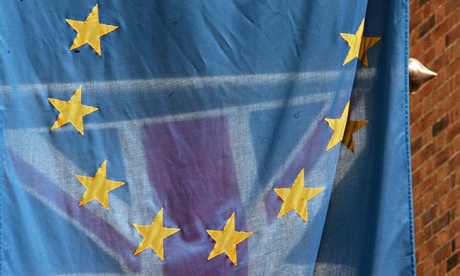
Political fashion has left the Europhile out in the cold over the past 10 years. It hasn’t been easy to get air time to articulate a case for a stronger and more powerful Britain shaping politics and policy at the heart of Europe. But fashions turn, and the European Movement, which I now chair, is regaining its stature as a strong voice for the silent majority. Europhiles are again making their case, reshaping our movement to amplify the argument that the UK’s future needs a strong voice at the European top table.
Those already at the door marked “exit” embody a strange combination of defeatism and lack of ambition. They pose as the great patriots, but would any prime minister or British monarch (at least since Elizabeth I refused to marry a continental king) develop a clear policy to reduce the UK’s influence in Europe? That is what exit means – a real and highly substantive reduction in the UK’s influence with our neighbours and in our power to shape Europe’s policy. I do not see how anyone could think that a UK sitting on the outside would be a more powerful country; that withdrawal from any international club would enhance our international influence; or that leaving a trading organisation could in anyone’s mind reflect an economic strategy that will serve British business and jobs better.
And what about our own United Kingdom, an increasingly difficult settlement between four nations. For a start, withdrawal would not support a stronger union because pro-European Scotland would be back at the “independence” ballot box within months. It is Northern Ireland’s future stability, however, that would be most compromised; all political understandings would be threatened, the economy would be destabilised, and cross-border trade totally compromised. A political impact assessment of the consequences of European withdrawal for Northern Ireland would be a terrifying document to read, for the people of Northern Ireland and the coherence of the UK. Within years it would be irretrievably damaged, politically and economically.
But we should not be satisfied with simply having a go at the bolters. We have a responsibility to be clear about why Europe matters and what it can now and into the future deliver for this country and all our citizens. For too long people like myself have been complacent.
Being part of Europe matters – looking at a map confirms that we are part of it whether we like it or not. Movement, flexibility, a choice of 27 other countries where you can live, work, trade and travel with much greater freedoms than any other group of 28 nations in the world. We take this for granted. So we must be clear that we are putting at risk real freedoms, not fictional or theoretical freedoms. Freedoms that young people take up when they study abroad, and when hundreds of thousands of pensioners move to Spain.
And this freedom delivers us immeasurable domestic benefits. In places such as Thanet free movement fills our seaside towns in summer, while our language schools are packed with European students; even our fishermen, notoriously Eurosceptic, sell their fish in French fish markets – and get better prices. If there were ever a false prospective being sold by the outers, it is that small businesses will benefit from withdrawal from the largest economic market in the world. Big businesses can relocate to another European location at the drop of a hat. Multinationals will start to use continental suppliers who they know are up to speed with product standards. The smaller company, meanwhile, trying to maintain its market within a European supply chain, will have an uphill struggle.
We are heading for a difficult time economically that will last for many years. With a realignment of our economy in relation to emerging economies there will be a need to shape new ideas to secure a prosperous Britain. We will not be able to secure this stability politically and economically without building coalitions and sitting at the top table. We will need and want to work with our neighbours for our common interests, and I am sure all Britons would be horrified to find that life-changing decisions were being made in Brussels without us even being invited to put our view forward. At this particular moment more than any, for us to be retreating to the exit of the most powerful economic grouping in the world would be perverse at best and deeply unpatriotic at worst.
The European Movement believes that together we can achieve so much for the UK through working with other countries. We should be greedy about free trade with Europe, plus the US, plus other countries across the globe. Not, as the bolters propose, the rest of the world without Europe. We must secure an “EU plus” not a “minus EU” strategy. If we’d had the lack of ambition in the 1700s that some have today, we wouldn’t have got as far as the Channel Islands, never mind America and India.
There are few here in the UK or beyond who would say that all was right with Europe and its institutions, but all political institutions – domestic and international – are under threat and in need of fundamental reform. At such a time of change and reform it is critical that we have a voice, that we have influence, and that we are able to shape our future with our neighbours rather than being isolated from them. Only then will we be able to build a stronger nation within an increasingly strong Europe.

